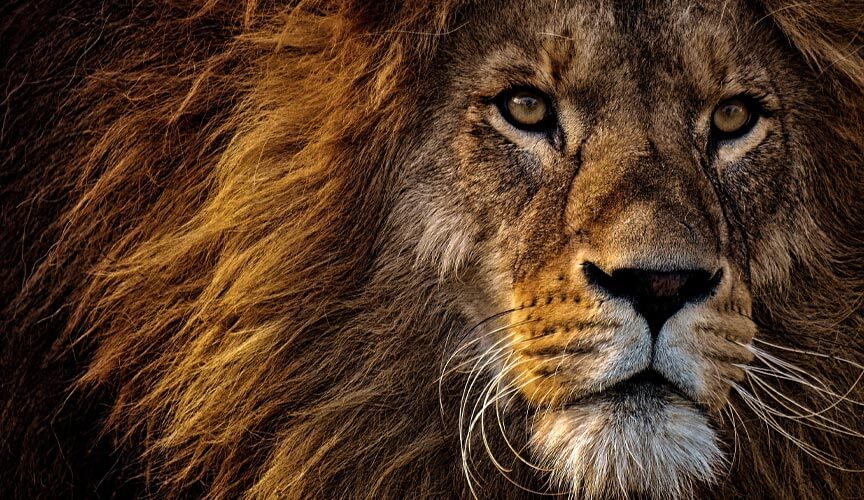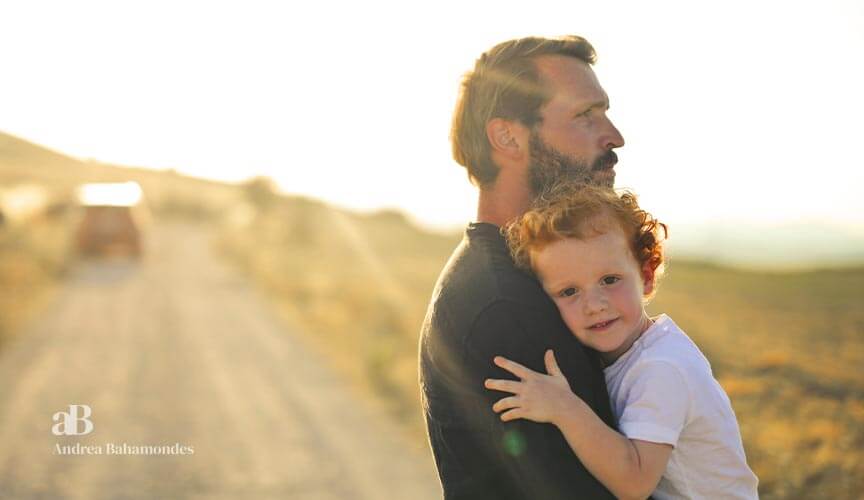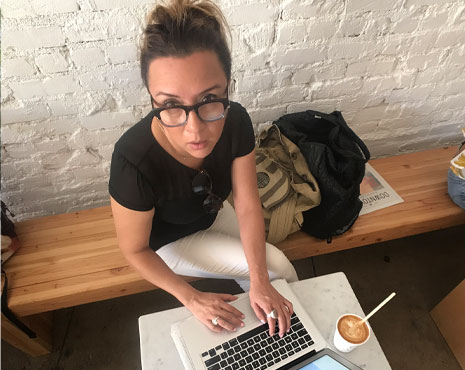A few days ago, after something was mentioned in a session with a client, I spent an entire afternoon having a mental wrestling match with a word.
You know, those moments when you say something and you are almost certain that your point didn’t completely land as you expected.
I noticed some confusion or a facial reaction that almost felt like a cringe.
The wrestling match started [in my head] after realizing that my client never asked for clarification but never made any comments to confirm the cringe either. 🤔
The word was Courage.
And in this post, I’ll attempt to fix its reputation.
What is “Courage”?
“If you don’t risk anything, you risk even more.” – Erica Jong
Put on my researcher hat and off we go.
First stop, the dictionary…
“The ability to do something that frightens one.”
Good so far, let’s dig a little deeper…
I head out to the UPenn Authentic Happiness website, one of the top publications in this field.
The first paragraph of an article called “Defining Courage” gives me the first hint:
“Courage is a universally admired virtue, and courageous individuals in all cultures have survived across time to become the heroes of subsequent generations.”
The second paragraph confirms to me that, this wrestling match [in my head] is happening for the rest of the afternoon:
“Philosophers have pondered these questions since antiquity. But psychologists, who had a significantly later start, have focused more on fear than on courage. The literature reflects this imbalance and contributes to the lack of consensus on a simple definition.”
😳
Aaand my researcher hat goes off.
I realize the word “Courage” has a problem—actually, two problems.
The Misconception of Courage

The next morning, a conversation with one of my clients handed me another piece of the puzzle.
Quick story:
My client is an awesome Financial Consultant in his mid-50s. Successful career and the whole nine yards.
But, life’s not always a glam show. Despite the professional highs, he’s been riding a wave of loneliness, watching his marriage drift for over a decade.
That connection he craves? Poof, gone.
Each day, a familiar script unfolds – breakfast together, a brief exchange, separate paths, and a rendezvous for dinner. The evening, once the only time for intimacy, dissolves into routine conversations and shared TV shows. Post-dinner, she immerses in her iPad, while he delves into late-night work.
Rinse and repeat – a monotonous cycle spanning over a decade.
Turns out that shaking up the routine is no picnic. Saying something different, rocking the boat, spontaneously suggesting a cozy dinner? Easier said than done.
And then he says…
“But, how do you muster the courage to switch things up after all these years?”
Courage?
I thought courage was a “universally admired virtue, and courageous individuals in all cultures have survived across time to become the heroes of subsequent generations.”
There it is:
Facing the uncertainty and the fear of rejection by proposing to change a routine ingrained for over 10 years.
Gazing into her eyes, clasping both of her hands and uttering the words, “I miss you.”
Now, that is courage.
The problem is that we’re associating courage with grand gestures, giant leaps, big financial risks…
Nobody will call you courageous for telling your spouse that you miss her.
The Cringe of Courage
The effect of modifying the perception of a concept as a society.
Yes, we use trendy words until we destroy their original meaning, we can turn a negative thing like workaholism into a cool thing to say, we romanticize things like depression or anxiety, and we ridicule entire concepts like… Courage.
I, for example, immediately associate the word with a bunch of super cheesy quotes on cheap graphics.
Okay, so we sometimes misinterpret the word “Courage” or we form a perception that gives it a negative connotation.
But, where do we go from here?
How do I finish the post?
This post is not about “Courage”! 😳
We’re missing a key ingredient, maybe even more important than courage.
Vulnerability
“To share your weakness is to make yourself vulnerable; to make yourself vulnerable is to show your strength.” ― Criss Jami
Definition…
“the quality or state of being exposed to the possibility of being attacked or harmed, either physically or emotionally.”
Now, why “vulnerability”?
Because you don’t need the courage to spit out “I miss you” or “I’m sorry.”
You need courage to be vulnerable.
We fear small gestures of love due to potential rejection.
We fear stillness, thinking we won’t know who to be if we stop doing so.
We fear connection, doubting our desirability.
Venturing into those dark corners isn’t easy. We feel threatened, and exposed, and we run for the quick exit: Avoidance.
But, vulnerability does not mean standing in the center of a dodgeball game with your eyes closed.
Vulnerability occurs when we engage in active listening, being fully present to absorb all the information shared with us. Through thoughtful questions and receptive body language, we reflect back, creating a space that validates others’ feelings.
Embracing vulnerability sparks curiosity, urging you to question your thoughts rather than treating them as absolute truths. It encourages you to challenge outdated thinking patterns that create disconnection and dim the brightness of your life. Instead, foster thoughts that empower and radiate light.
Embracing vulnerability involves a readiness and dedication to acquire new knowledge, explore and understand yourself better, and foster resourcefulness. It also entails the humility to seek assistance, tapping into the wisdom of mentors, coaches, therapists, or spiritual guides who can offer insights that may not see on your own.
Welcoming vulnerability encourages the practice of self-compassion, urging you to extend understanding to the aspects of yourself that require healing. It prompts reflection and a search for understanding regarding the areas where you may be grappling, reminding you that perfection is unattainable and that there are others in the world going through similar experiences.
It’s a commitment to learning, a willingness to heal, and ultimately, it’s about putting your guard down and trusting the process.
To grow, we must trust that vulnerability invites more love, joy, and connection into our lives.
Image Credit: Andrea Piacquadio / Alexas Photos




0 Comments